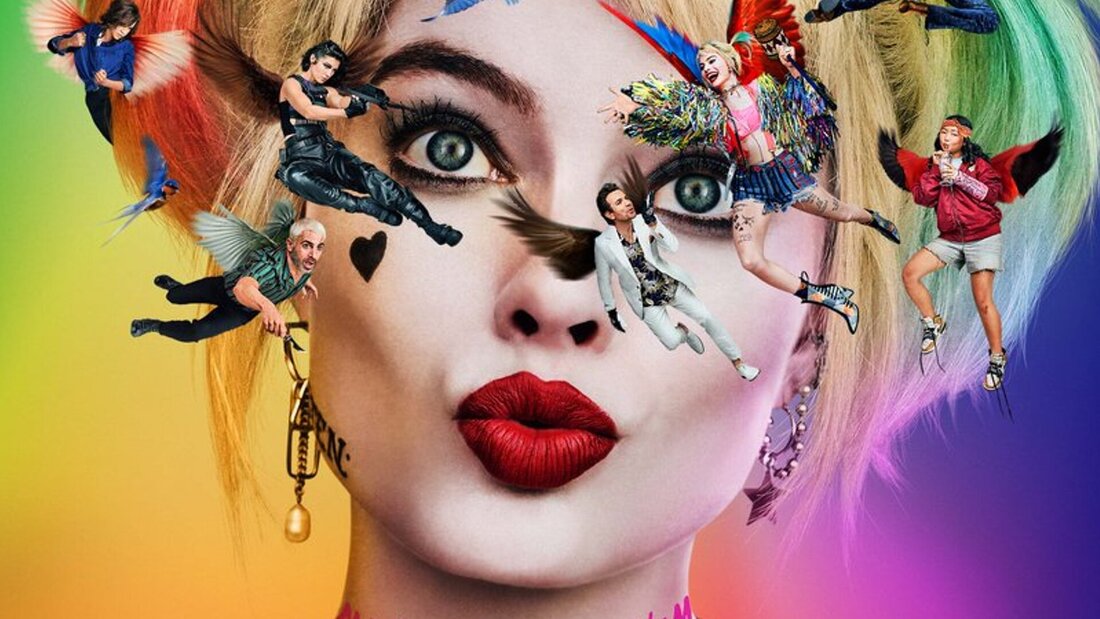|
by Saprina Howard 2020 saw the release of several hit films just before the COVID-19 quarantine dropped. One of the last major films many folks saw in theaters (including myself) was Birds Of Prey, an action superhero film that follows Harley Quinn’s schemes after her break up with the Joker. It’s packed with loudly choreographed fight scenes, witty banter, and memorable color schemes. Though I look back on the experience fondly, I can’t help but to remember an uneasiness that plagued me. The film was cool or whatever-- until a comment so distasteful in one particular scene ruined my mood for the rest of the film. It hijacked my usual post-movie-deconstruction convo as I rode home with my partner that night. What is this scene? A little Context. The film’s villain, Black Mask brags to one of the protagonists, Black Canary, about his various treasures and foreign cultural artifacts displayed around the room. He notices she’s fixated on a mask to which he approaches her and reveals it is from the Congo. He asks her if she’s been there, she replies no, but that she’s heard it’s beautiful. He quickly refutes her claim with one horrendous line, “It’s dirty”. The scene moves on. timestamp: 36:38 - 36:51 Why Does This Scene Ruin The Mood?
The comment may have been a device to help audiences grasp how truly disgusting this villain is. However, the audience would also have to believe the opposite of what Black Mask said, or else he would just reaffirm the audience’s negative beliefs about countries in Africa. The latter is true. This movie isn’t reserved exclusively for audiences who understand that Africa is a continent with resources and cultural wealth, nor that a plethora of its countries are modern societies. Instead, this scene was ingested by ordinary people around the world who believe Africa is a monolithic and poverty stricken ‘country’ where barbarism and tribal warfare are the heights of their civilization. I boldly claim such because I, an African American, sat amongst a mainly white and asian audience in San Francisco where this scene caused the entire theatre to erupt in laughter. They detected humor where I detected insult. No joke was told, but those laughing understood the code implied by stating that the Congo was “dirty”. Humor depends on socio-cultural understandings. As an effect of post colonialism and the ways the world has been conditioned to prescribe little to no value to African culture and Blackness as a whole, it’s common for people to believe the insidious myth Africa is an uncivilized place. The “joke” (statement rather) may have seemed harmless, but it’s really a symptom of a greater issue. It’s safe to say that finding Black Mask’s statement funny required viewers to feel affirmed in their own misconceptions of Africa enough to identify with the line. By laughing they revealed their ignorance. While it is certainly in the writers’ best interests to make believable dialogue, it’s unfortunate that a supremist comment like this is even believable for Black Mask to say. Screenwriters choosing to write things like this is exactly how film perpetuates lies about Africa. Remaining critical and considering the context in which a thing was created is a good way for viewers to remain vigilant to the ways Africa is silently subordinated in our subconscious. Coded language and jokes indoctrinate our thinking and understanding about places we’ve never been, which makes it easier for us to accept myths that justify the racialized world we live in “Believable dialogue” doesn’t need to perpetuate negative stereotypes. With that said, Black Canary’s response was well written-- admitting she’d never been to the Congo but heard it was beautiful. Sure this movie was fiction, but why wasn’t Black Mask’s “believable dialogue” imagined outside of a stereotypical box too?
0 Comments
Leave a Reply. |
Archives
March 2024
Writers
All
|
